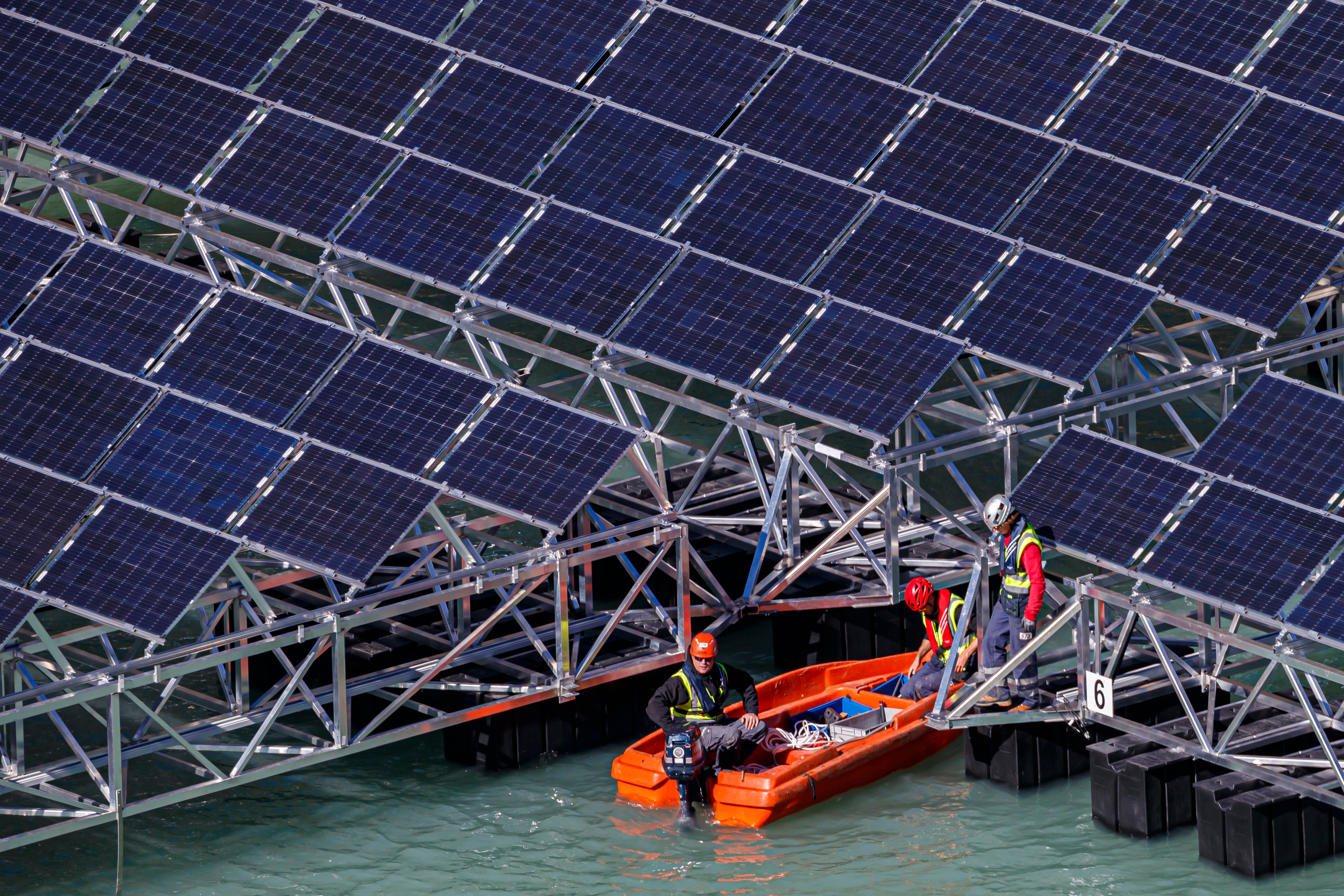A southern Swiss region votes on a plan to fast-track big solar parks on Alpine mountainsides
Voters in a southern Swiss region are casting their ballots to decide whether to allow large solar parks on their sun-baked Alpine mountainsides as part of the federal government’s push to develop renewable energies

Your support helps us to tell the story
From reproductive rights to climate change to Big Tech, The Independent is on the ground when the story is developing. Whether it's investigating the financials of Elon Musk's pro-Trump PAC or producing our latest documentary, 'The A Word', which shines a light on the American women fighting for reproductive rights, we know how important it is to parse out the facts from the messaging.
At such a critical moment in US history, we need reporters on the ground. Your donation allows us to keep sending journalists to speak to both sides of the story.
The Independent is trusted by Americans across the entire political spectrum. And unlike many other quality news outlets, we choose not to lock Americans out of our reporting and analysis with paywalls. We believe quality journalism should be available to everyone, paid for by those who can afford it.
Your support makes all the difference.Voters in a southern Swiss region cast their ballots Sunday to decide whether to allow large solar parks on their sun-baked Alpine mountainsides as part of the federal government’s push to develop renewable energy sources.
The referendum in the Valais canton centers on economic and environmental interests at a time of high and rising concerns about climate change.
It's also a noteworthy test of public opinion. “Not-in-my-backyard”-style opposition to the plan over a presumed blight on bucolic Swiss mountain vistas has made for some unusual political allies in the Alpine country.
A rejection would not torpedo solar parks entirely if the private sector wants to develop them. But a “no” would set back the region, seen as one of the sunniest and most apt for solar parks in Switzerland, against others like central Bern Oberland or eastern Graubünden for generous federal funding for such projects — up to 60% of needed financing for big solar parks.
Proponents say Switzerland benefits from hydropower — its main source of energy — mostly in the summer, and high-altitude solar parks situated above the typical cloud cover would provide a steady, renewable-energy alternative in the winter, when the country needs to import electricity. They say federal funding would speed up development of solar power.
Opposition to the plan has seen some environmental groups align with Switzerland's conservative populist party. They say solar parks would be an industrial eyesore on pristine Swiss mountains and argue that outfitting more buildings and homes in towns and cities — closer to where the energy would be used — is preferable.
“Through its giant dams, Valais has already given a large share of its electricity to the country,” the local chapter of the Swiss People's Party said on its website. “Adding another environmental degradation to this first one is unacceptable.”
“Ransacking our Alps for the benefit of greedy foreign operators and their no-less-greedy local affiliates can only be an evil enterprise and be to our detriment,” it added.
Valais lawmakers and officials are urging a “yes” vote on the proposal, which asks voters to agree to a decree — which the regional council passed 87-41 in February — authorizing construction of big solar parks that can produce 10 Gigawatt hours of electricity per year.
The federal energy department estimates that about 40 to 50 proposals for large solar parks have been made across the country.
Overall, Swiss federal authorities have set a target of 2 billion Gigawatt hours in new solar energy under legislation promoting development of solar energy, adopted in September 2022. Some areas, like nature reserves, are excluded from possible development.
With concerns about climate change and their much-vaunted glaciers in mind, Swiss lawmakers have also already approved a plan that requires Switzerland to achieve “net-zero” emissions by 2050. It also set aside over 3 billion Swiss francs (about $3.4 billion) to help wean companies and homeowners off fossil fuels.